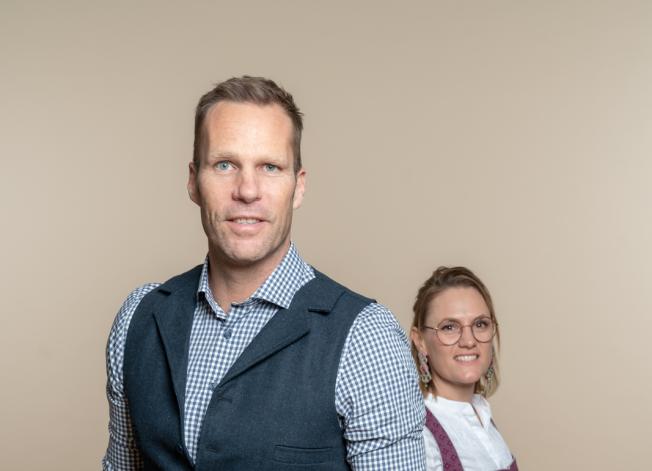
In search of meaning
The three factors that play a major role here
What really makes sense? What fulfills me? What do I achieve through my work? What enriches my life? What impact do I want to have? And what do I want to achieve? Questions like these occupy many of us. After all, the question of meaning is currently the one that moves our society the most. In this blog post, we have tried to shed light on why this is the case and which factors play an essential role in self-realization.
High standard of living brings new values into focus
Five levels. That's how many the pyramid of needs of US psychologist Abraham Maslow comprises. His theory: only when basic and security needs, those for social recognition and contact as well as individual needs have been satisfied do we finally address the highest level, that of self-actualization. And this is precisely what is now the case in Western countries as a result of evolution.
Our standard of living is consistently high compared to that of previous generations. We no longer have to worry about not having a roof over our heads, dying of a harmless childhood disease or being stoned to death for a lifestyle outside the mainstream. Instead, the focus is shifting to other aspects - above all self-realization.
Inevitable culture clash
Many of these achievements and today's prosperity are based on the commitment of previous generations. It was they who paved the way for this through hard work and careful use of capital. And this also led to these generations developing a strong sense of saving. No wonder, after all, you don't want to carelessly squander what you have worked hard for.
For the younger generation, however, the focus is now on other values for the reasons already described. Work and diligence are increasingly being replaced by freedom and self-realization. And representatives of older generations are often unable to understand this. The criticism that young people do not respect traditional values and do not know what hard work means is omnipresent in many discussions. At the same time, however, young people no longer just want to live in order to work, but are pursuing other goals. The result is an inevitable culture clash.
Generation burnout vs. generation feelings
The fact is that the new generation is mostly different in that the topic of "feelings" and "emotions" generally has a much higher priority than before. For example, the question "How are you?" used to carry significantly less weight than "How are you doing?" As already described, the older generation's striving was important and ultimately made this high standard of living possible in the first place, but the insistence on performance also has its disadvantages - keyword "burn-out". And this is something that the younger generation would like to avoid at all costs.
Because, shockingly, this affliction is now so widespread that it is almost normal. Or to put it another way: if the majority of people around you "feel" the same way, you won't even notice your own ailment. Even though stress, a full head, insomnia or the feeling of hopelessness should warn us and encourage us to change something.
A sustainable paradigm shift is important
But how can you change your lifestyle if you are used to a standard of living that you can only maintain by working as hard as you can - and thus remain stuck in the hamster wheel? And how much time is left at the end of the day to determine, enjoy and navigate life yourself in any way - on a course towards self-realization? As you can see, we are now back to the question of meaning. So we cannot avoid a general shift. A paradigm shift. And this must be sustainable.
Our social environment shapes who we are
So what can you do yourself to let go of the old and improve your own life? A much-quoted sentence by the American author Jim Rohn is as follows: "You are the average of the five people you spend the most time with". This means that those five people influence you, your life, actions and thoughts the most.
So take a look around you: Who are your five people? What do they do for a living? How much time do they have? What burnout symptoms do they show? What topics do they talk about? What is important to them? What do they complain about? And what are they happy about? What makes sense in their lives? Then ask yourself: Who will take me further? Who has a similar mindset to mine? But who drains my energy and slows me down? Our social environment is crucial - and we should and may clean it out from time to time.
Clarify your own life questions
In the next step, ask yourself: What is most important to me? Money, time, health, love? And how much importance do you place on these values in your current life? Perhaps too little? Be honest: what do you do for your health, for example? How much time do you devote to it? And when you think of "health", do you only mean physical health? Or mental health as well? And what about your individual needs? What do you need? And what do you need more of?
And once you have found the answers to these questions, the next question arises: Do you dare to express your needs out loud? Can you talk about them with your boss, colleagues, partner or friends? All of this is important, because only those who know themselves well know what they are striving for in life and can take the appropriate steps.
From I to We
The mere fact that you are dealing with such questions - even if only now, while reading these lines - makes you a person who asks themselves the question of meaning, who takes a closer look and thinks about what it is ultimately about. Mind you, this is primarily about you, because we are still a long way from the central question we posed at the beginning, namely: What do I want to achieve? That means: in the lives of others and in the world in general. But that's a good thing. Because the first step is to find out for yourself who you are, where you stand and what you need to develop and strengthen yourself.
Because one thing is clear: only people who are physically and mentally fit can give and make a difference. And who are at peace with themselves. And that brings us to another word that characterizes the new generation: self-love. So yes, we are allowed to love ourselves. And say it openly. Even if previous generations may take offense at this new openness.
The ideal environment
"The heart wants what the heart wants." This is perhaps one of the quintessences. Because if we deny ourselves our true essence, we will never be permanently happy - and will never be able to bring any of it out into the world. So let's summarize what we have said so far: Firstly, in order to track down your own meaning, you need the courage to go within yourself and show yourself as you are. Secondly, the social environment also plays a role.
And then there is a third component around the corner: your surroundings. Your home is central to this - a place where you can recharge your batteries. But it is also essential to constantly break out of it in order to broaden your horizons and be inspired. And this is where we come in, if you like: Because what we can offer you at the Seehotel Jägerwirt is an environment where you can feel at ease, where you can surround yourself with other people who are asking the same questions, and where you can be inspired by the unique natural surroundings. We have created a place here where we consciously give space to the question of meaning, so that you go home a changed person and feel the sustainability of your vacation in every facet of your being.









